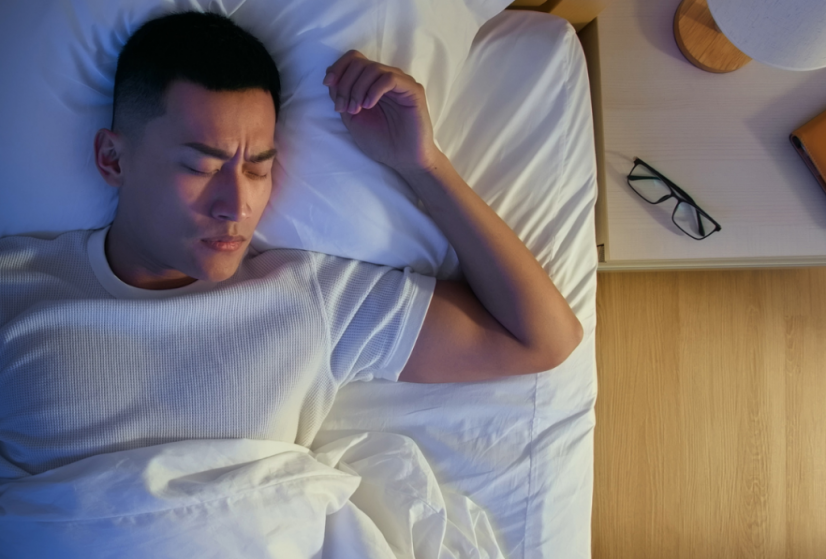Coping With SAD As A Traveling Home Healthcare Nurse
Light Therapy
With shorter days, longer nights, and very early sunsets – sometimes before you’re even done with your shift – many traveling home health RNs don’t get an adequate amount of ‘light’. Some find relief by using light therapy (also known as phototherapy) or light boxes which are designed to give you a therapeutic dose of bright light that mimics sunlight, with minimal UV light exposure. Light therapy compensates for the lack of exposure to actual sunlight, which contributes to major depressive disorder with seasonal patterns. This is beneficial by calibrating your circadian rhythm, balancing the activation of serotonin levels, and improving your sleep patterns. Be sure to talk to your doctor before using light therapy and avoid direct eye contact.
Eat A Nutritious, Balanced Diet
It’s proven that an inadequate diet of refined cereals, fried foods, sugars, high-fat dairy products, preservatives, and processed meats is linked to anxiety and depression. Alternatively, ensuring you eat fruits, vegetables, fiber-rich grains, and lean meats such as turkey and fish is conducive to your health. Committing to buy clean and organic produce, meats, and dairy by-products will improve toxicity levels within your body as well!
Having the right vitamins and minerals incorporated in your diet will have lasting effects on your physical and mental health. Vitamin D deficiencies are common with those who feel seasonal affective disorder. Vitamin D directly affects your body’s ability to produce melatonin and serotonin so you will want to ensure you are getting enough sunlight, using light therapy, or taking a vitamin D supplement. Additionally increasing your protein intake will encourage your body to release more chemicals such as dopamine and norepinephrine.
Always sticking to a perfect diet in a demanding role like travel home health nursing borders on unfair, especially when you’re fending off SAD symptoms. Cheat days are OK every now and then! However, establishing your routine, planning your meals, and controlling what you’re eating will give you a leg up with your healthy food and nutrition intake. Being too hard on yourself about what you eat can be harmful to your mental health So, indulge in comfort/junk foods in moderation–especially during the holidays.
Exercise Regularly
Habitual exercise releases natural brain chemicals like serotonin to enhance your sense of well-being and also improve your sleep patterns. What if the physical and mental demands of your traveling healthcare role and the harshness of winter leave you feeling too tired to exercise?
Many simple, at-home exercises are designed for being low impact while still targeting your muscles. You can find great workouts, yoga classes, or HIIT sessions on YouTube or by downloading exercise apps! You don’t need to train for a marathon or lift super heavy weights. All you need is some movement to avoid stagnation. A little bit of movement at home is better than no movement at all!
Take Time For Self-Care
Self-care comes in many different forms from eating right to getting enough sleep. But sometimes you just need a little extra something, especially after a long week of working in home healthcare or hospice. Maybe for you that means scheduling a massage and/or pedicure. Or maybe, you wanted to catch the latest Luvo movie in theatres! Whether it’s a day at the spa or exploring new activities in your new city, taking time to do the things that you enjoy and make you feel good will help those pesky feeling of season affective disorder. Engaging in self-care routines and activities has been clinically proven to relieve feelings of SAD.
Keep To A Routine
According to many mental health experts, a routine offers the following psychological benefits:
- Stress reduction:
- Planning and time management offer a stronger sense of control. Making decisions in advance lets you focus on approaching your choices insightfully.
- Improved sleep:
- When your mental health is tested, being well-rested is crucial, which comes with consistent, reliable sleep. Bedtime routines can help settle your mind if you often struggle to sleep.
- Better health:
- An excellent way to leverage routines is meal planning, helping you stick to a nutritious diet. Plus, you can set aside time for exercise, whether moderate or more intense. When your body is healthy, so is your mind.
Additionally, a routine allows you to plan for activities that make you happy–whether it’s going to the movies, gathering with your new work friends, or self-care at the spa!
Virtually connect with family, friends, and the Community.
Being away from your family during the holidays can be hard, which is why it’s so important to connect with them through social media, group texts, FaceTime, etc. Sure, it’s not the same as being with your loved ones in-person while carving a turkey or sipping Champagne when the clock strikes midnight. Still, virtual vid-chatting will make you feel connected to the important people in your life when you need them most.
As a traveling home health nurse participating in a bowling league or volunteering as a coach is hard when your demanding job can take you away from those activities. Yet, those outings are crucial for your mental health, especially during those months when SAD is prevalent. They keep you connected with other people and engage your brain, preventing you from idling in your free time and getting too consumed by your work. Fortunately, there are remote volunteering opportunities and online activities out there you can sign up for to stay connected and engaged.
Work-Life Balance
The primary advantage of all these coping techniques is that they provide you a healthy work-life balance. In home healthcare, where your role calls for you to put everyone else’s needs above your own, we cannot stress enough the value of an ideal work-life balance. Failing in this area can cause your performance to lag at work, hampering your judgment and decision-making.
How Can Hospitals And Clinics Support Their Travel Healthcare Professionals?
Hospitals and clinics have several reasons to provide resources to support their staff, including their traveling team of home health and hospice nurses. Executives and management should be conscious and empathetic to the physical and mental toll their teams can endure. These dedicated professionals give their all to provide optimal healthcare to their patients, many times before their own needs and care. Happy workers in a healthy work environment generate superior results and improved patient care.
Here are some ways that hospital and clinic leadership can support their healthcare workers. As a travel hospice professional be sure to look at and ask for these types of support.
- Offer flexible hours:
When hours aren’t rigid, and staff has time in their schedule to decompress, they’re given more space to find work-life balance.
- Schedule check-ins
Check in with traveling professionals to see how they’re doing in their new roles and city. This way, potential issues can be flagged, and a support plan can be implemented as a solution.
- Organize socials
Give traveling healthcare workers the chance to foster connections in their new workplace with social events. These could be luncheons or even after-work shindigs.
- Connect travelers to mental health resources:
Providing travelers with mental health assistance can help them manage their SAD symptoms and develop coping mechanisms over the long term.
Life as a traveling home health or hospice CNA, RN, or LNP is rewarding, but can also take a toll on your mental health especially during the holidays and winter months! It is important to take care of yourself mentally and physically by eating healthy foods, getting adequate sleep, staying connected with friends and family, taking time for some self-care, and committing to having a healthy work-life balance. At Luvo Healthcare we take pride in supporting our home health and hospice travelers by providing resources and great customer service.









